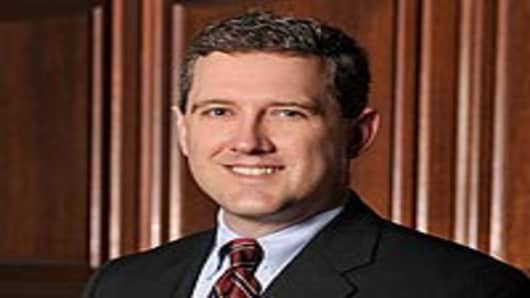Current economic conditions are not dire enough to justify more Federal Reserve monetary easing, St. Louis Fed President James Bullard told CNBC in remarks that seemed to counter meeting minutes released Wednesday.
Bullard said economic data has changed since the Fed meeting on July 31 and Aug. 1, when the central bank's Open Market Committee indicated more stimulus would "be warranted fairly soon" unless the economy improved.
He labeled those minutes as "stale" and said if growth continues around 2 percent for the remainder of the year, the Fed likely will remain on the sidelines.
The July unemployment ratewas 8.3 percent though the economy created a net 169,00 new jobs, while gross domestic product (explain this) was up 1.9 percent in the second quarter. Housing data, though, has improved as have other metrics.
"If we were to resume, and I think we will, 2 percent growth, maybe a bit stronger than that in the second half of the year, unemployment ticks down through the rest of the year, that's not a great outcome but that's a good enough outcome to keep us on hold," he said.
He also tamped down expectations that the Fed would be prepared in any event to come in with a huge quantitative easing (explain this) program. Two previous bouts of QE have expanded the central bank balance sheet to $2.8 trillion.
"Probably the best thing to talk about here is what would that action really be," he said. "I think the markets have the idea of some gigantic action. I'm not sure if the data really warrants that."
Markets reacted to Bullard's remarks, sending stock market futuresoff their morning highs.
The U.S. economy faces three principal headwinds: The European debt crisis and accompanying recession; the fiscal cliff threat of broad-based tax increases and spending cuts in 2013 if Congress does not reach deficit-reduction targets; and slowing growth in China and other emerging economies.
Europe has been the primary market driver of the three, but Bullard said the situation seems less dire than it once appeared.
"We're only reacting to Europe as it affects the U.S. economy, and the story on that is the direct effects of the European recession (is) they are there, they are tangible, but they are relatively minor compared to a financial meltdown-type effect, and I think the chance of a financial meltdown is a wildcard but it's maybe down a little bit," he said.
Bullard also was critical of the European Central Bank's handling of the crisis, saying it should not buy debt of individual countries but rather across the board.
He added that he is "pessimistic on Europe's ability to deal with" its crisis.



